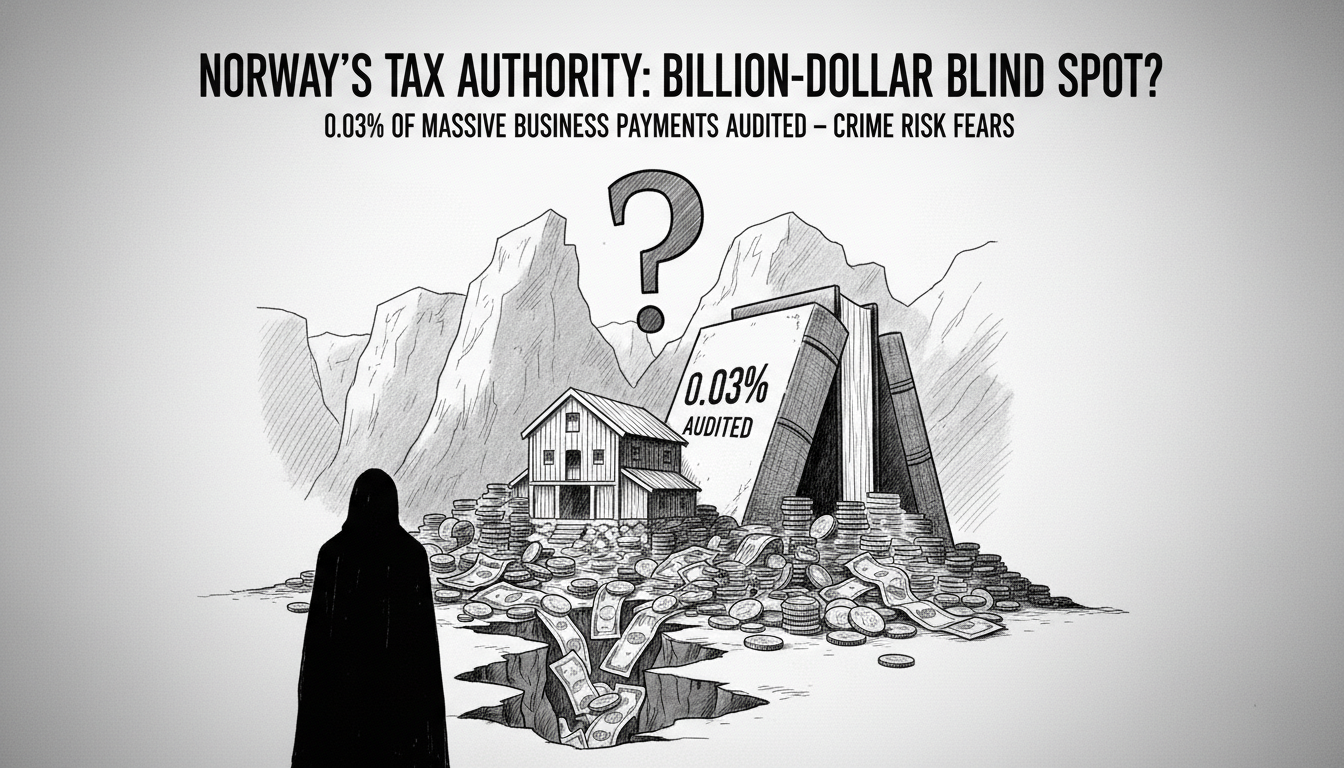Norway's National Audit Office has issued sharp criticism against the country's Tax Authority for its oversight of VAT refunds to businesses. The audit reveals that only 0.03% of massive VAT refund payments face proper verification, raising serious concerns about financial crime prevention.
Auditor General Karl Eirik Schjøtt-Pedersen stated that the Tax Authority fails to adequately comply with economic regulations designed to prevent and detect financial crime. This represents the second-most severe form of criticism available to Norway's top financial watchdog.
Value-added tax (VAT) functions as a consumption tax on goods and services throughout Norway. Businesses pay VAT on their purchases but typically receive refunds for these payments since VAT ultimately targets end consumers. The standard VAT rate stands at 25%, with reduced rates applying to food, non-alcoholic drinks, passenger transport, accommodation, and cultural activities.
The investigation followed previous reports about inadequate tax controls and enforcement. Internal tax documents had previously warned that control levels were critically low. Tax authorities acknowledged the problem but claimed digital checks and external data collection reduced the need for traditional audits.
During the most recent reporting period, Norwegian authorities disbursed 176.2 billion kroner in VAT refunds to businesses. The audit shows tax officials check very few of the cases flagged as suspicious by machine learning systems designed to identify high-risk transactions.
The National Audit Office now recommends that the Finance Ministry ensure control levels match the substantial risks involved. This recommendation comes amid broader concerns about Norway's tax enforcement system.
Recent investigations have uncovered multiple schemes where companies exploit tax loopholes. One investigation revealed how businesses worth millions in tax deductions are being sold on social media platforms. Another case showed how 1,100 companies collectively losing 14 billion kroner found new owners despite having no revenue or measurable assets, with these transactions systematically reducing buyers' tax burdens.
Norwegian law explicitly prohibits purchasing companies primarily for tax advantages. Beyond losing the tax benefits and potentially facing additional taxes, buyers face no criminal penalties for such transactions. This legal gap creates incentives for aggressive tax planning that costs the Norwegian treasury substantial revenue.
The situation highlights ongoing challenges in balancing efficient tax administration with robust fraud prevention. As digital systems handle increasing volumes of transactions, authorities struggle to maintain adequate oversight while processing legitimate refunds promptly.
International readers should understand that Norway's VAT system mirrors similar value-added tax structures across Europe. However, the country's extensive welfare state makes tax compliance particularly crucial for funding public services. The current audit findings suggest Norway may need to reevaluate its approach to business tax enforcement.

